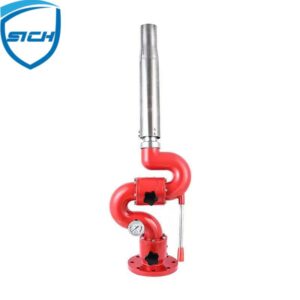The requirements for fire suppression systems in residential buildings may vary depending on the location, building type, and local codes and regulations.
Here are some general guidelines for fire suppression systems in residential buildings:
Single-family residences: In general, single-family residences are not required to have fire suppression systems, such as sprinkler systems or standpipe systems. However, some local codes may require them in certain circumstances, such as for homes that are located in areas with high wildfire risk.
Multi-family residences: Multi-family residences, such as apartment buildings and condominiums, may be required to have fire suppression systems, depending on the local codes and regulations. For example, the International Building Code (IBC) requires automatic sprinkler systems in all new multi-family residential buildings that are four or more stories in height.
Senior living facilities: Senior living facilities, such as nursing homes and assisted living facilities, are often required to have fire suppression systems, such as automatic sprinkler systems, in order to protect the residents who may have limited mobility or other health issues that make evacuation difficult.
Group homes and residential care facilities: Group homes and residential care facilities, such as homes for people with disabilities or mental health issues, may also be required to have fire suppression systems, depending on the local codes and regulations.
It is important to consult with local fire authorities and building officials to determine the specific requirements for fire suppression systems in residential buildings, as they may vary depending on the location and building type. Fire monitor manufacturer supplier China Additionally, it is important to follow manufacturer’s recommendations for maintenance and testing intervals for fire suppression systems, as well as to ensure that the system is regularly inspected and tested by qualified professionals to ensure that it remains in good working condition. Proper care and maintenance of fire suppression systems can help to ensure that they are effective in the event of a fire, and can help to protect the residents and property within the building.
What are the qualifications for professionals who inspect and test fire suppression systems?
The qualifications for professionals who inspect and test fire suppression systems may vary depending on the location and local codes and regulations.
However, here are some general guidelines for the qualifications of professionals who inspect and test fire suppression systems:
Education and training: Professionals who inspect and test fire suppression systems may have a background in fire protection engineering, mechanical engineering, or a related field. They may also have completed training courses or apprenticeships in fire suppression system installation, inspection, testing, and maintenance.
Certification: Many jurisdictions require professionals who inspect and test fire suppression systems to hold certification from a recognized certification organization, such as the National Institute for Certification in Engineering Technologies (NICET) or the International Code Council (ICC).
Licensing: Some jurisdictions may require professionals who inspect and test fire suppression systems to hold a license to perform this work, which may involve passing an exam and meeting other requirements.
Experience: Professionals who inspect and test fire suppression systems may have several years of experience working in the fire protection industry, including experience with the specific types of systems they are inspecting and testing.
Knowledge of codes and standards: Professionals who inspect and test fire suppression systems must have a thorough understanding of the relevant codes and standards that apply to the systems they are working with, including NFPA codes and standards, local building codes, and other relevant regulations.
Equipment and tools: Professionals who inspect and test fire suppression systems must have access to the necessary equipment and tools to perform the work,including specialized testing equipment, gauges, and tools required for system maintenance and repair.
Communication and reporting skills: Professionals who inspect and test fire suppression systems must be able to communicate effectively with building owners, managers, and other stakeholders, and must be able to provide clear and detailed reports on the condition of the systems they inspect and test.
It is important to check the specific qualifications required by local codes and regulations when selecting a professional to inspect and test fire suppression systems. It is also important to select a qualified professional who has experience working with the specific type of system being inspected and tested, and who has a track record of providing high-quality, reliable service. Regular inspection and testing of fire suppression systems by qualified professionals can help to ensure that they remain in good working condition and are ready to perform in the event of a fire, helping to protect life and property.



